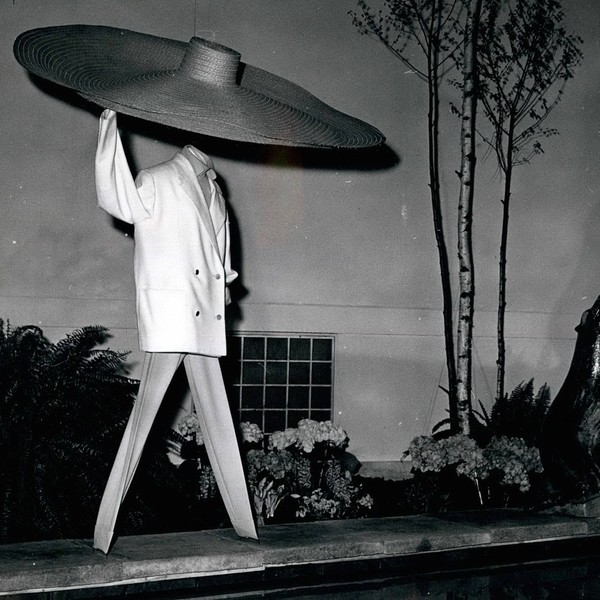
If you ever tried acupuncture, Tai Chi, or gua sha, you’ve practiced Traditional Chinese Medicine (TCM). But there’s more to TCM than just a jade roller and pressure points. Warm bone broths steeped for hours and sweetened herbal brews were my medicines growing up, while Advil Liqui-Gels and NyQuil were left virtually untouched. Like every other Asian-American kid I know, I’ve had my mom say “Drink this soup to circulate your blood flow better, so your skin looks more youthful.” Did I believe her claims? No. Did I do as told? Yes. Did it work? I think it did. After blindly following my mom’s recipes for years, I needed to know, do these blends really work?
Brews, elixirs, and tinctures sound complicated but with the right ingredients, there are blends created for hormone health, immunity, stress, and gut health. If you don’t want to make the trek to Chinatown to gather all your ingredients, Elix has simplified the process. The wellness brand focuses on delivering personalized Traditional Chinese Medicine supplements catered to your specific needs. Inspired by her upbringing and experience with TCM, founder Lulu Ge created Elix to offer another alternative to Western medicines. Below, we chatted with Ge to break down what TCM can offer, learn her favorite all-star ingredient, and address the most important question: does it work?
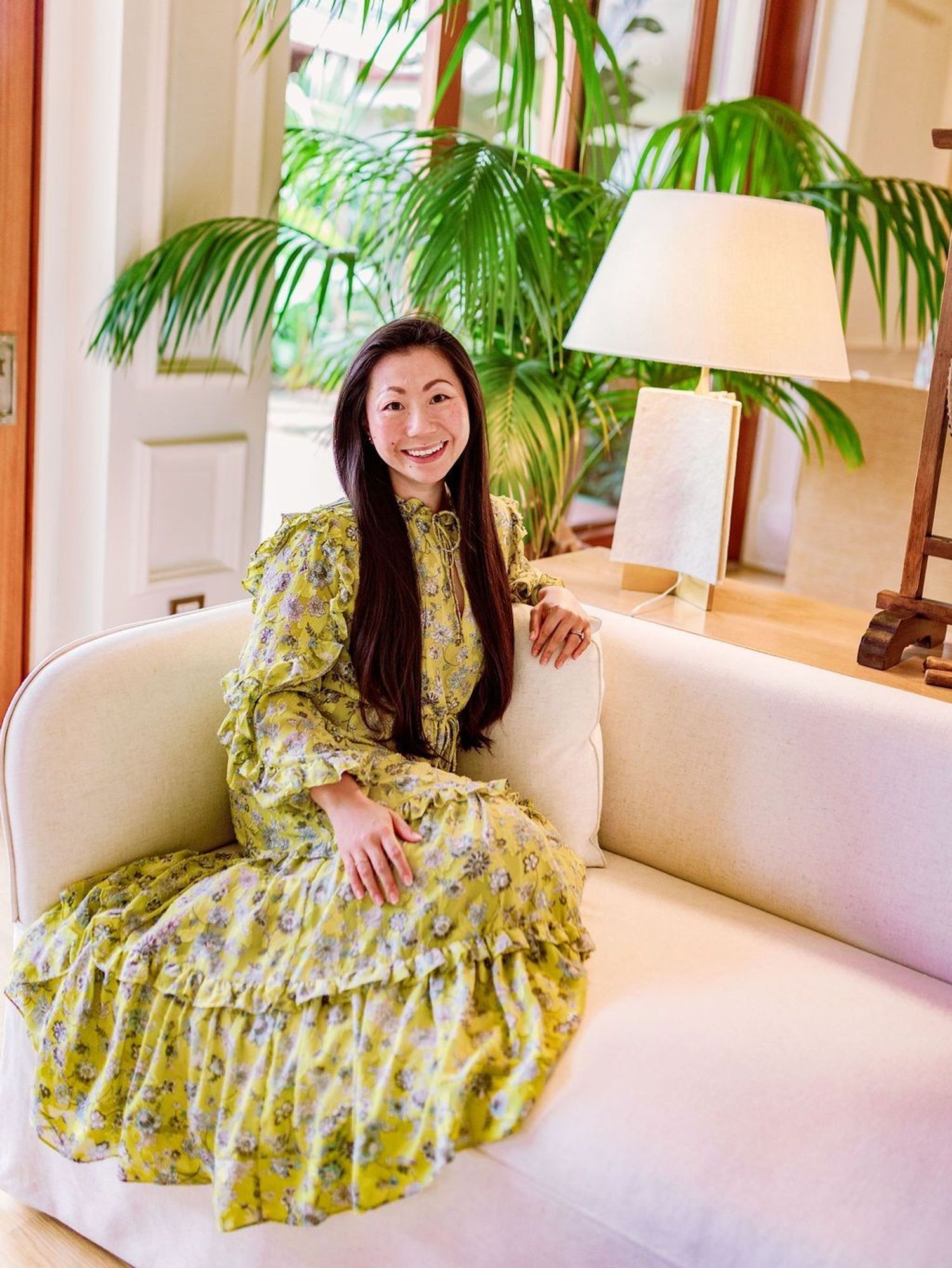
Courtesy of Elix
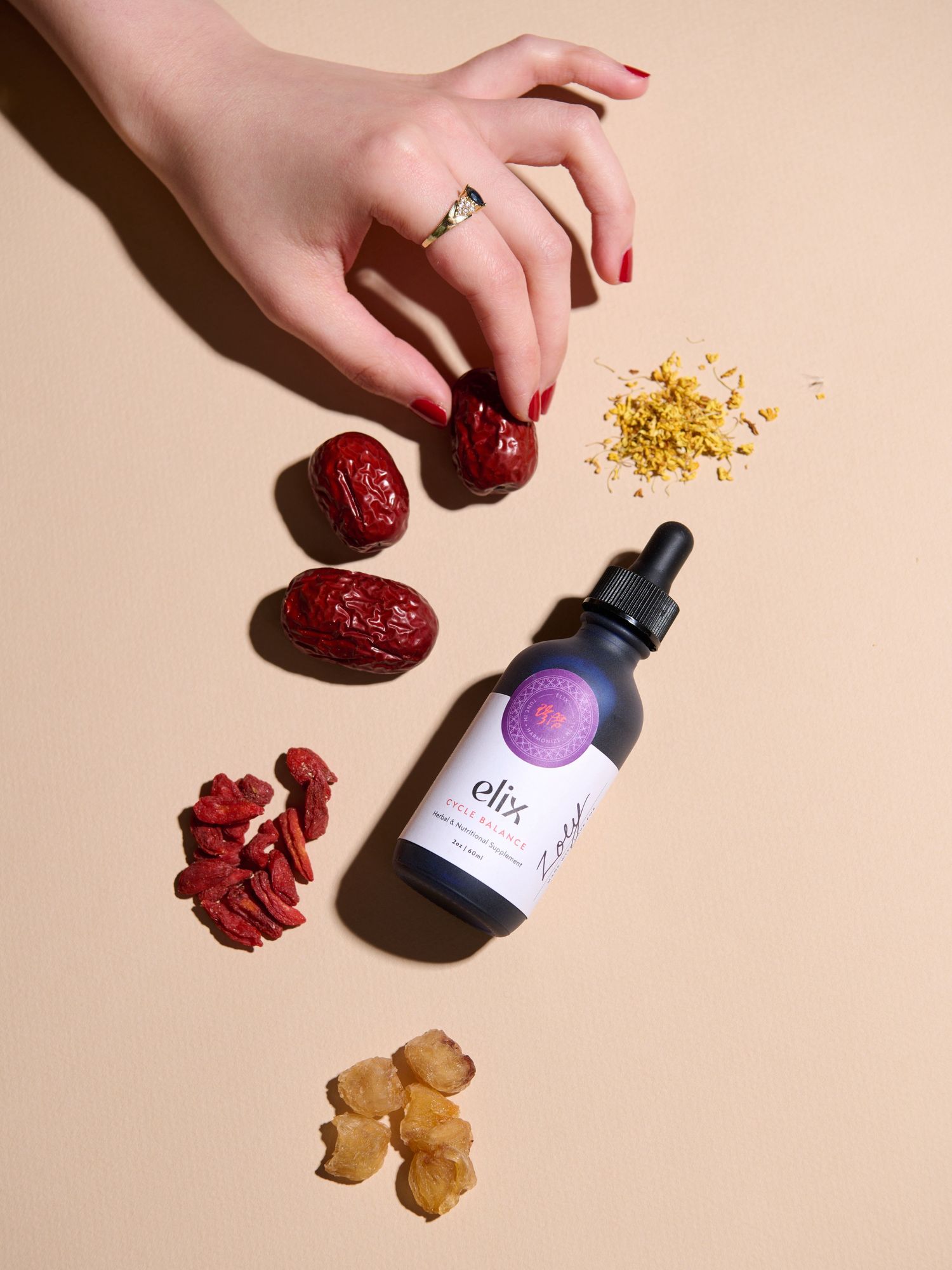
Courtesy of Elix
Coveteur: How would you explain TCM to a beginner who is interested in learning more?
Lule Ge: “I really try to keep it simple in that TCM is really one of the earliest mind, body, and spirit medicines and forms of healthcare and dates back to almost 5,000 years ago. From a Chinese medicine perspective, healthcare is really those small daily actions that we take to care for and nourish our overall health and well-being and keep our bodies in balance.
There were times when doctors of Traditional Chinese Medicine were compensated on a weekly cycle to make sure that you were eating the right foods and that you were getting acupuncture and acupressure to remove any blockages.
This is what I love about TCM, and I think it's such a holistic modality. The treatment could be certain foods to eat, and foods to avoid. It could be different types of movement; if you have a lot of emotional frustration and stress, it could be tht you want to let that stuff flow through your body.”
How did your TCM journey start and evolve? And how did it result in Elix?
LG: “I essentially grew up with TCM from the day I was born since my grandfather ran a hospital. I always thought that the soups, the stews, and the massage therapy were part of Chinese culture and heritage. I was a very rebellious kid, [though], so I was always a little skeptical. Like, does this actually work?
I went off of birth control after being on it for about 15 years to regulate my period. But when I went off the pill, I experienced post-birth control syndrome and my hormones were haywire. I had hormonal acne everywhere; my hair started falling out, and I had crazy migraines, digestive issues, and issues with sleep. It really manifested itself in my periods.
Long story short, I went to three different gynecologists who only wanted to put me back on the pill, patch, or ring, or give me some prescription for the pain. That's when I found my way back to Chinese medicine and got connected to a good family friend in Shenzhen, Dr. Xia Hongsheng, one of Elix's advisors.”
Cycle syncing and yin and yang of our menstrual cycle is one area where Western medicine and Eastern medicine are very much aligned.
What can people expect after trying out Elix? Are there any use cases you think Elix is particularly well-suited for?
LG: “Our hero treatment line is focused on menstrual and hormone health. I really believe in the intersection of East meets West sciences. I think sometimes people can hear these terms in Chinese medicine, chi stagnation or heat and dampness, and it sounds so esoteric. At Elix, we try to map the Chinese terms and explain them in scientific ways. For example, heat and dampness are different forms of inflammation and ways that inflammation could build up.”
I feel like a lot of people already know about yin and yang, but what is it and how does that play a part?
LG: “This is my favorite topic, and it's perfect for women's health and the menstrual cycle. We do a ton of education on cycle syncing. So, how do you sync your diet, your behaviors, and your lifestyle to the phases of your menstrual cycle? It's like biohacking for women, and cycle syncing and yin and yang of our menstrual cycle is one area where Western medicine and Eastern medicine are very much aligned.
So from a menstrual cycle perspective, when we're on our periods, it's the most yin time of the month. It's the winter of our cycle. So things that feel good in the winter from a TCM perspective are what you should be doing to nurture yourself.
So having that warm bone broth, the soups, cooked vegetables, avoiding iced things. Then the follicular phase, as Western medicine says, is the time when our hormone levels rise again, transitioning yin to yang. Ovulation is the peak yang season from a Chinese medicine perspective with our cycle.”
How would you describe the different approaches to healing when comparing Western and Eastern medicine?
LG: “The Western medical system has developed and innovated by creating deeper levels of specialties. A doctor coming out of medical school chooses one of over 40 different areas of the body to specialize in. So you grow in your career as a doctor by getting really in-depth on a corner of the face, a corner of the gut, a corner of something. So the system is really designed to look at one specific part rather than looking at the whole. When we look at insurance companies and incentives, I think it's quite sad that doctors are actually compensated more to conduct surgery or to dispense pharmaceutical pills rather than to sit and talk to someone about diet and lifestyle.
Whereas from a Chinese medicine perspective treats the body as a whole. Let's look at the root cause and then address the symptoms from there. And let's also start with the least invasive treatment course first. So that's why we would always ask questions about diet. We would always ask questions about levels of stress, sleep, bowel movement, and urine because all of these are indicative of the interventions that could be most helpful.”
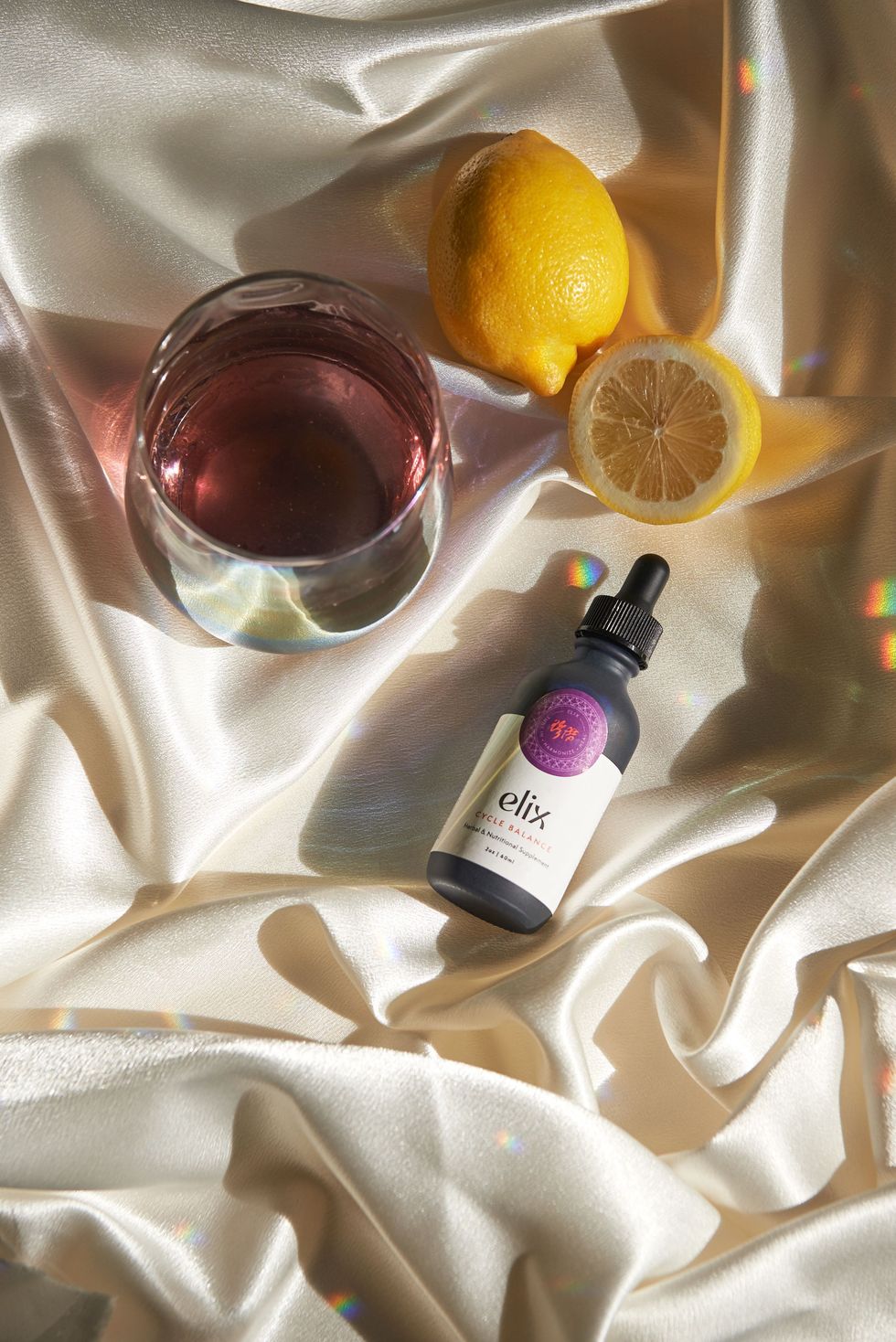
Courtesy of Elix
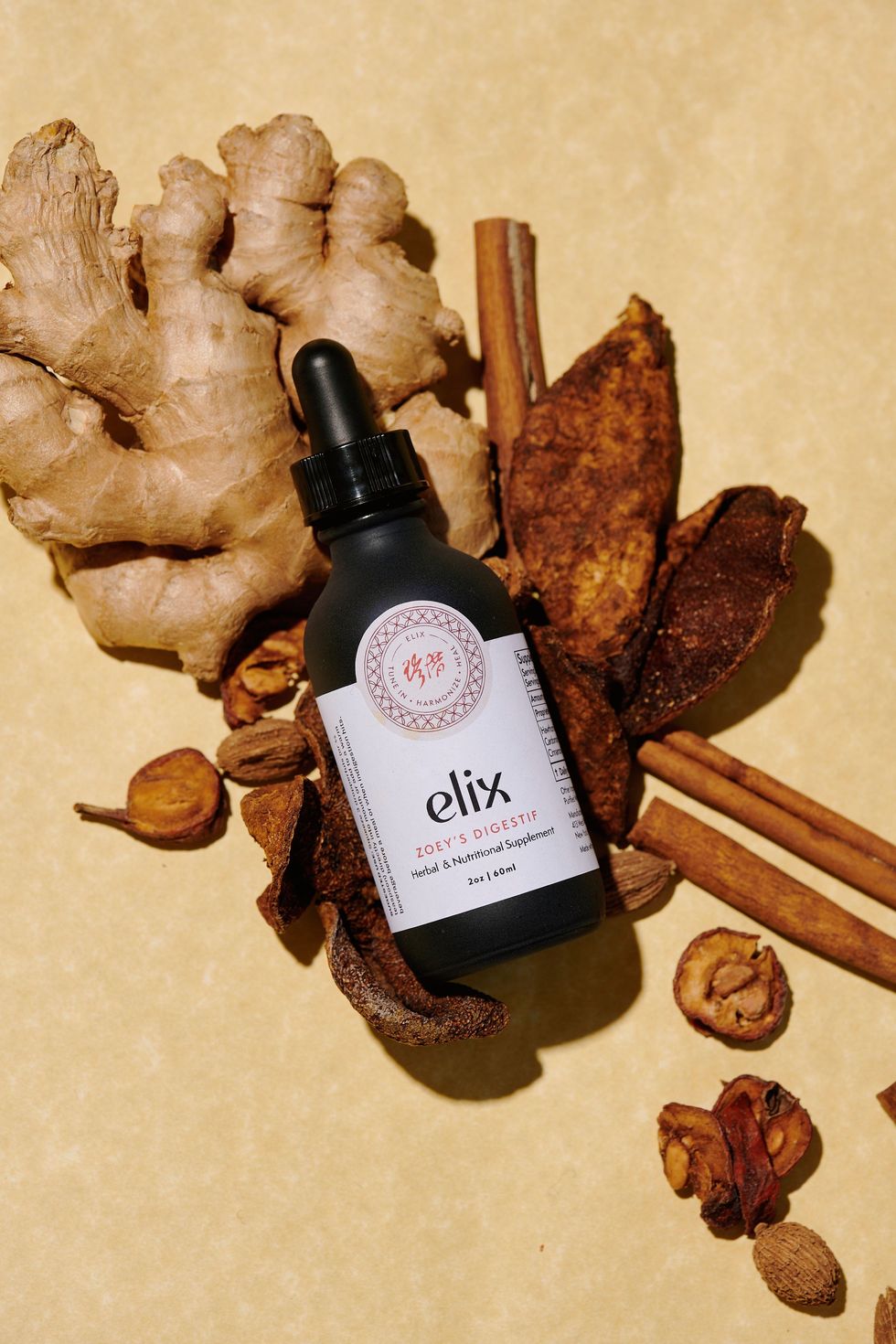
Courtesy of Elix
What are some of your favorite ingredients, or herbal blends?
LG: “Growing up, I feel like my mom put ginger in everything. At Elix, we have an organic gingerade, where we have organic gingers sliced down that we boil and stabilize in organic glycerin. So it tastes like ginger honey, but it's super spicy and potent. I never leave the house without our organic gingerade. I add it to my coffees and matcha. It's a good pick-me-up if I'm starting to feel a little tense or if I eat something that might not agree with me.
It's a warming spice shown to help with nausea and bloating. It's an anti-inflammatory and has anti-microbial properties. I find that in our current modern lives, there's a lot of cold; whether it's having an iced drink or ice cream or yogurt, we interact with a lot of different cold substances, and this is a great thing to have to help with. TCM says we should be expelling the cold, and I think it's good if you feel like a little bit of a cold or flu coming on, or you feel a little bloating and indigestion. It's something just so simple and gentle.”
Any stereotypes you’d like to debunked?
LG: “The biggest one is ‘Does it work?’ I think there are a lot of studies on a lot of formulas, and I'm excited for Elix to contribute to more of the research around it so we can combat the stereotype of 'does it work? Is there evidence behind it?'
The second one is ‘Can I trust it?’ That's one where I think not all TCM is created equal. It's like not all supplements are created equal. This is where I think consumers do need to do their homework and do need to ask the questions of if they're buying an herbal formula, where are the herbs sourced? How are they sourced? How are they tested?
The last one ‘It doesn't work.’ I think this is one of the biggest myths to debunk. Just because it doesn't work when you take it for the first or second time, doesn't mean it doesn't work. Do you expect your health to be transformed after one kale salad or one bowl of blueberries, or if you go to the gym once? I think we have to put TCM in the bucket of holistic wellness, life-transforming modalities that really take consistent care and ritual in order for people to see an effect.”
Want more stories like this?
Chelsey Bartrum Prefers Her Gemstones Imperfect
Thuy Is the Bay Area’s Princess
Ashleah Gonzales Is Writing It Down


